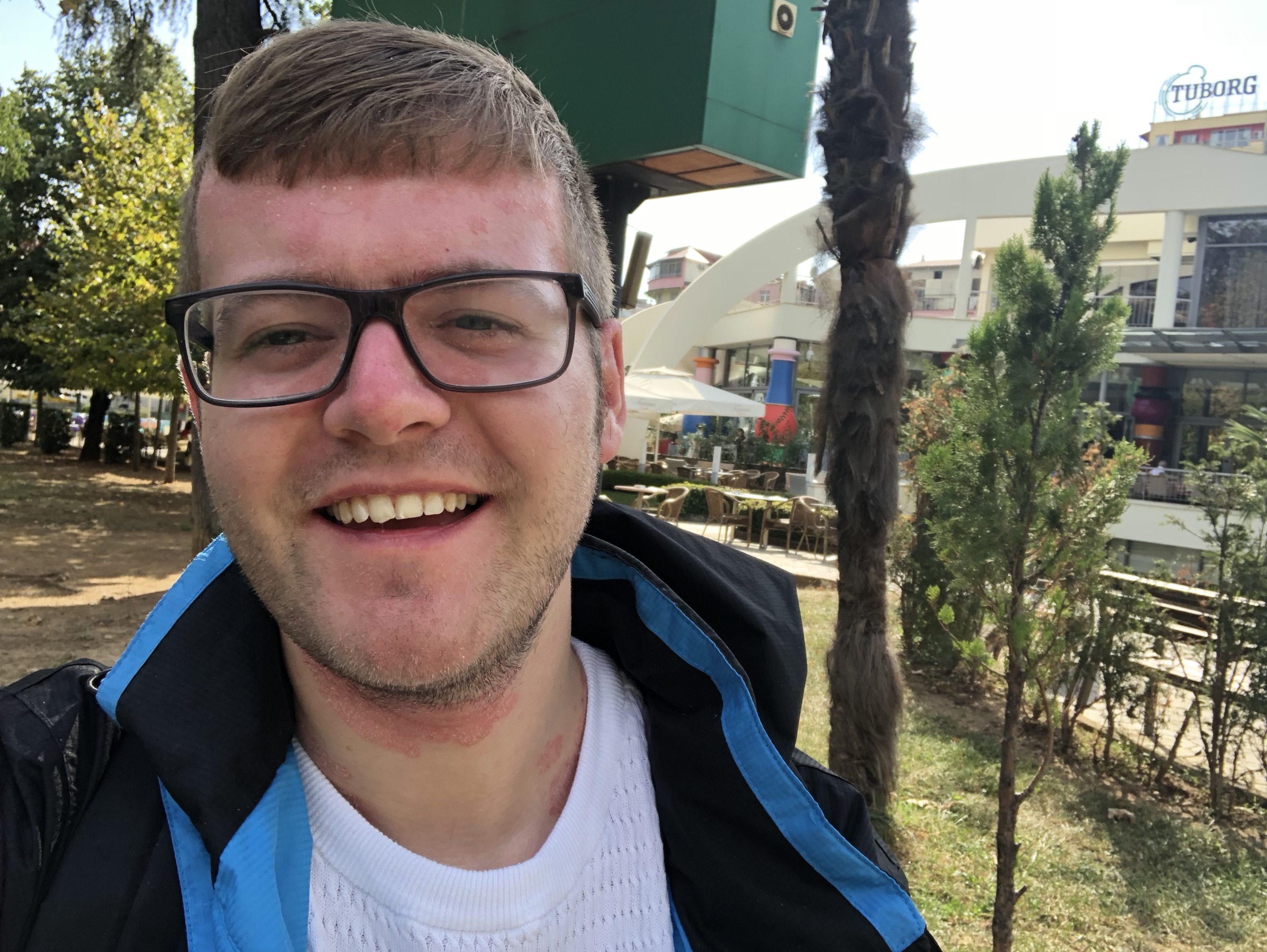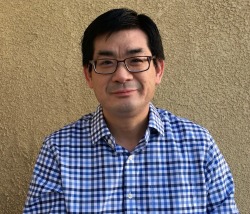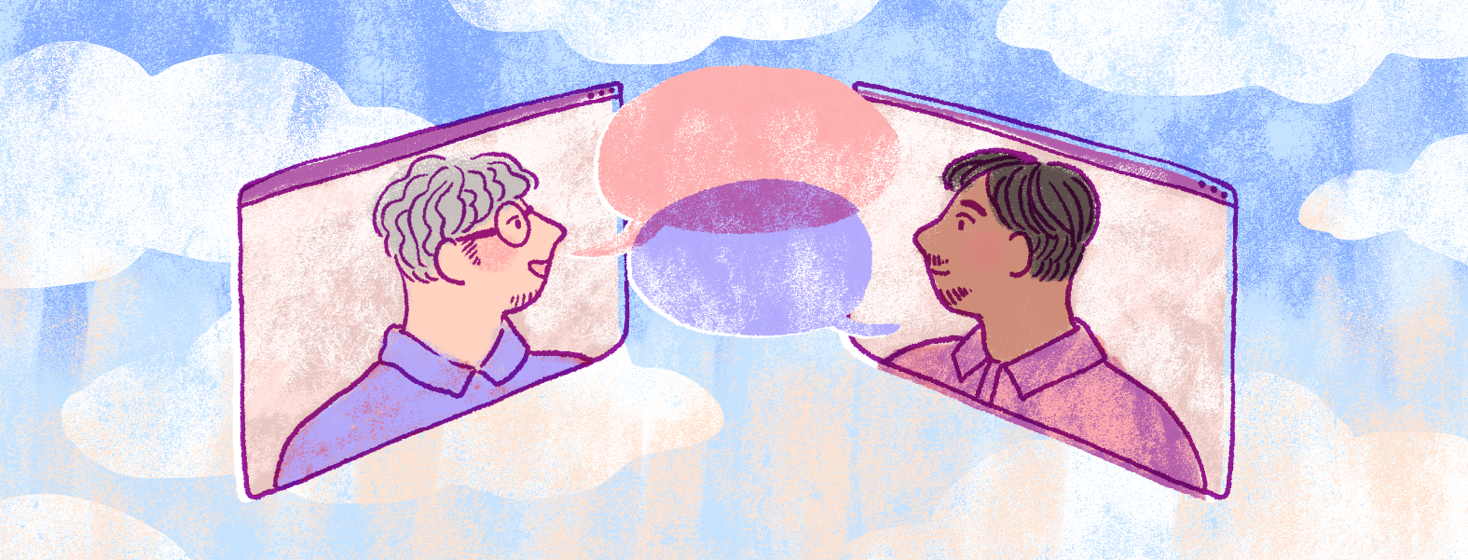Psoriasis Conversations: Mental Health and Finding Confidence
Psoriasis is just as common in men as it is in women. But that does not say much about the actual experience of men with the condition. Men and women have different triggers, associated conditions, disease severity, and treatment preferences. And they go about patient advocacy differently.
Anxiety, depression, and other mental health conditions are prevalent in people with psoriasis. Men, in particular, might significantly struggle because they generally tend to stay silent about mental health conditions.1 They may feel embarrassed about sharing or worried about appearing weak. This often results in men keeping their anxiety and depression to themselves, which can lead to psoriasis worsening.
Understanding gaps within psoriasis advocacy
Here at Plaquepsoriasis.com, we are lucky to have engaged advocates at different places in their psoriasis journeys. It is important that we take the time to highlight and share everyone's experiences. We have taken a look at the burden of psoriasis on women and even researched which populations may be more at risk for psoriasis.
We recently had the opportunity to connect 2 of our male psoriasis advocates, Howard Chang and Jack Gervertz. They took the time to discuss managing their own mental health and finding confidence while living with such a visible condition as psoriasis.
What advice do you have for others who might be struggling?
 Jack: Try and find a therapist who deals with chronic illness. There are not loads. I've heard some great things from other people who have had therapists who are familiar with skin problems. They know exactly how the lifestyle and plaques affect you. Try not to make your whole life about psoriasis. I know this is rich coming from me because I'll write about it and everything, but just try and if you can just say to people, you know, "It's just is what it is. It's just part of me."
Jack: Try and find a therapist who deals with chronic illness. There are not loads. I've heard some great things from other people who have had therapists who are familiar with skin problems. They know exactly how the lifestyle and plaques affect you. Try not to make your whole life about psoriasis. I know this is rich coming from me because I'll write about it and everything, but just try and if you can just say to people, you know, "It's just is what it is. It's just part of me."
Try not to get offended, you know, because I used to be in that spot – I hate talking to people about it. All I wanted to do was get away from it. I know I'm a lot more level-headed now, I think. Well, you know, in the end, people are going to ask because they're curious. Generally, they're not there to berate you or anything like that. Even if it's slowly, open up. I know it's hard, but just try and let them know what it is and go on with it.

Howard: Educate yourself, too. You know, we're still finding a lot. The community is undertreated in a lot of ways. There's a lot of different barriers to treatment, and some of it is misinformation about treatments or side effects. No one wants to take medicine. You don't do it because you want to. You're doing it because you have to. The more you understand, the less it controls you.
When I first started talking to other people, they really opened up my world, because it's like a shared lived experience. When you're with someone who's been through all the stuff, like different kinds of medications or anxiety about certain social situations, I think that that helps a lot. Whatever way you can get to bring it outside from yourself and out of your head will only help because it's multidimensional. We talk about mental, emotional, relational, social. It's not just physical.
How important is it to talk to others about psoriasis?
Howard: I asked my kids what was it like growing up with a dad who had psoriasis. Taking them on awareness walks and different events, they were very aware of the condition. The two of them said when they had a research project at school, they would pick psoriasis.
One thing that really hit me that I was really just moved by is how they said that they're more compassionate toward their friends who may not have psoriasis but other chronic illnesses. We've been able to model, to provide an example of patience and compassion. So I think that was, yeah, that was good to hear that there's something good. Something else good.
What needs to change to raise more awareness for men?
Jack: Certainly, overall, I think there needs to be better access to treatments and easier access to treatments. I don't think it's good that often with psoriasis you get worse. Certainly, how it works here in the UK, you get the condition, you tell your doctor about it, then he gives you a treatment. Treatment stops working after a few weeks, so you go back to your doctor and have to wait to see the dermatology team. So I think there's a lot of waiting.
Howard: Better access to treatments, more treatments, that will definitely work. That's the biggest thing. You've got to accept that this is a lifelong condition and that you're going to be living with it for the rest of your life. You know, you have periods where it comes and goes and it's not bad or is bad, but you have to come to a place where you say to yourself, "I'm not going to let this bother me anymore," or "It's not going to be as bad as I think it could be. It's not the end of the world." And I think once you've done those 2 things if you keep getting the treatment and you get into a good headspace, you'll be fine.
Being an Asian male, I think there's there may be some cultural things as well. You know, I can't say my dad was always sharing his feelings with me as I was growing up. We don't really talk about feelings. Right? I'm sure it's a generational thing. I'm really proud of myself in that sense.
Jack: Hopefully that continues to change, because I think men need to be able to feel comfortable sharing. No one should have to suppress their feelings just because they are a certain gender.
Has psoriasis impacted your self-confidence? What tools or practices have you applied to improve your self-esteem?
Jack: I mean, confidence is a really big thing, and I think it plays a big part in a lot of the dealing with this disease. I think for me, personally, I think it's just time that's really helped, to be honest with you. I think as I've grown up, I've kind of just learned how to be a person with this condition rather than have this condition define me. I've learned to live with it rather than letting it control my life. It's about learning how to sort of love yourself.
There's no special formula that's going to give you your confidence. You know, sometimes it's faking it till you make it. Sometimes you just have to accept that today's not a good day. Like, you're not going to be confident for the rest of your life. You know, I think that can apply to people who don't live with chronic illness. It's part of the human spectrum.
Having said that, I think I think I'm a bit privileged in the sense I'm on a biologic and it is helping. And I think if I wasn't on treatment and it was still bothering me and it was still widespread around my body, I think it probably would still affect my confidence. I'm much more able to deal with psoriasis than let it overtake me and overtake my emotions and make me feel that this is the end of the world. It's a tough one. I mean, I'm still on that journey. I think I'll have to report back in 10 years. What do you think, Howard?
Howard: Yeah, no, for sure. I've kind of been always put myself out there. I was a minister for 21 years. So being in front of people, I would have psoriasis all over my hands. Back in the day, we wore suits. You know, I like to wear dark suits. And so I had I have a lot of scalp psoriasis and just people brush flakes off my shoulders. I would feel a little self-conscious about shaking hands and welcoming people. I didn't want to scare people away.
I had psoriasis as a child and into my teen years. So I think it really profoundly affected my self-esteem and self-confidence. I was super shy, withdrawn, and probably depressed. I definitely agree with Jack in terms of the progression. Maybe as I matured and learned more about myself, also through my personal faith journey as well, I'm blessed because of this. I got confidence from being and achieving it in school and being ambitious.
Being in these communities has given me a lot of confidence. That people actually want to read my own experience and share with me their own. There are opportunities to help people that way, too.
The more awareness, the better.
With representation comes validation. With validation comes confidence. Understanding the variety of health disparities will not only meet more community needs but engage more psoriasis advocates. Raising psoriasis awareness helps eliminate stigma, improve research opportunities, and create community. It allows those who live with this condition to take back control.
This article is a part of a 2-part interview series. Read more about Jack and Howard's thoughts on representation and advocacy.

Join the conversation